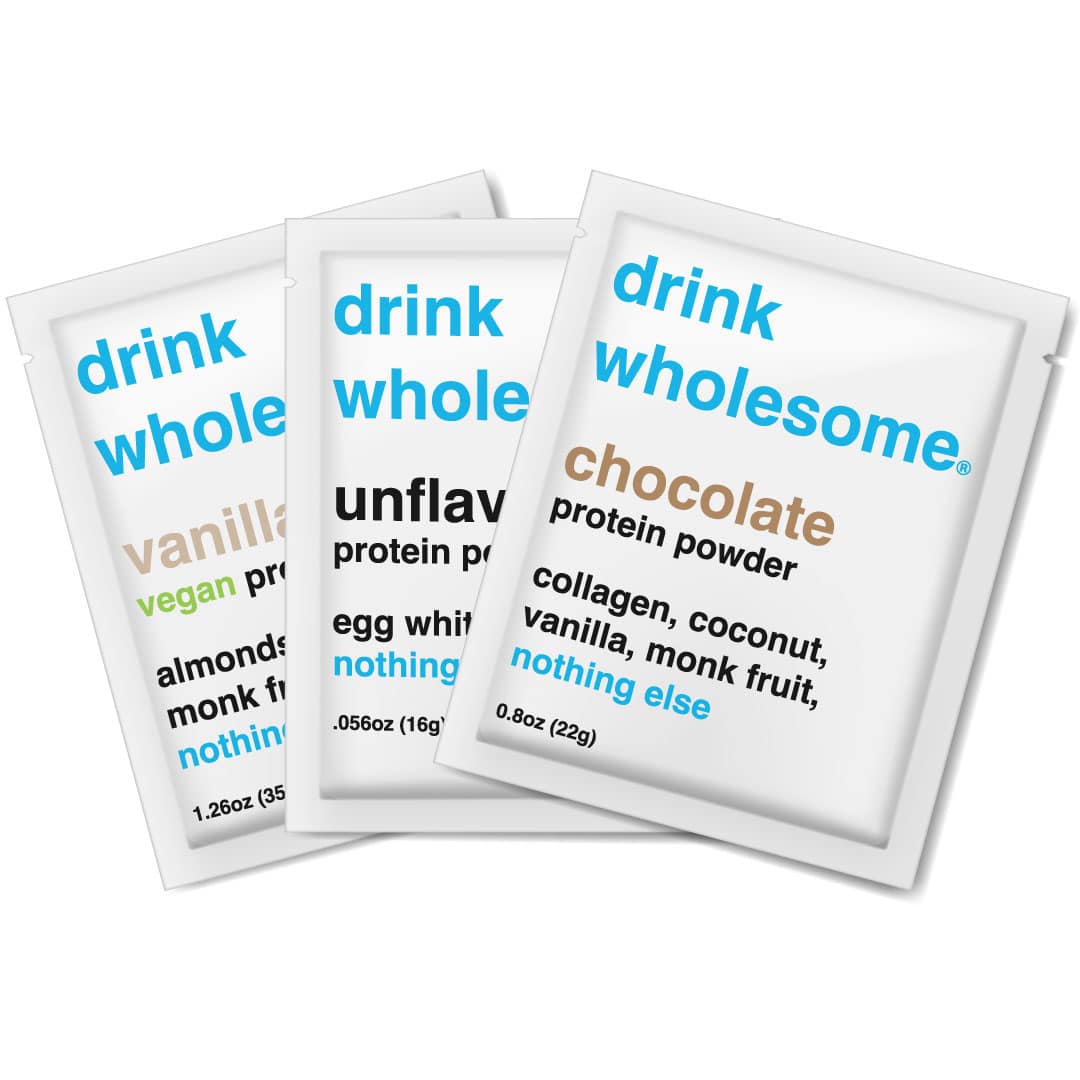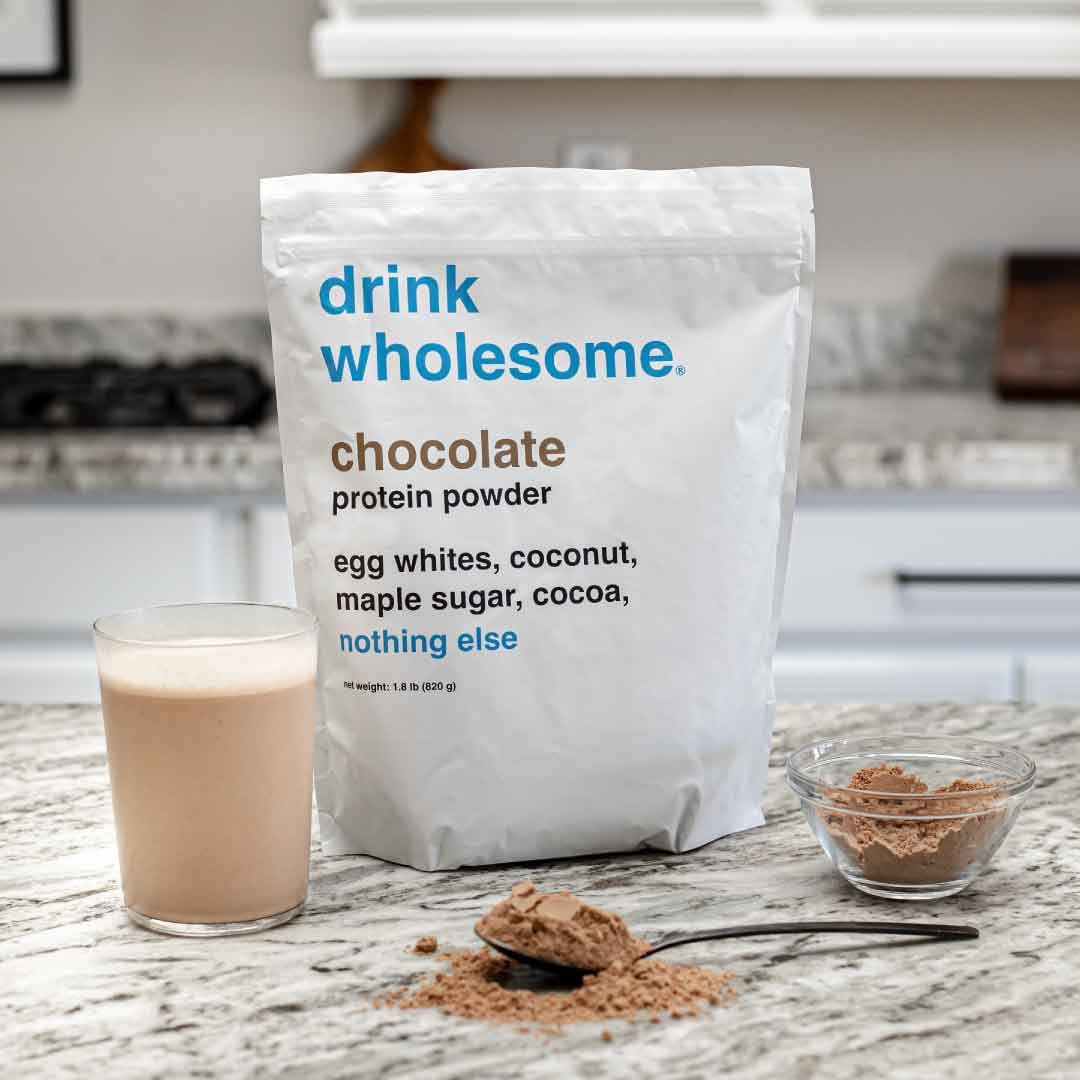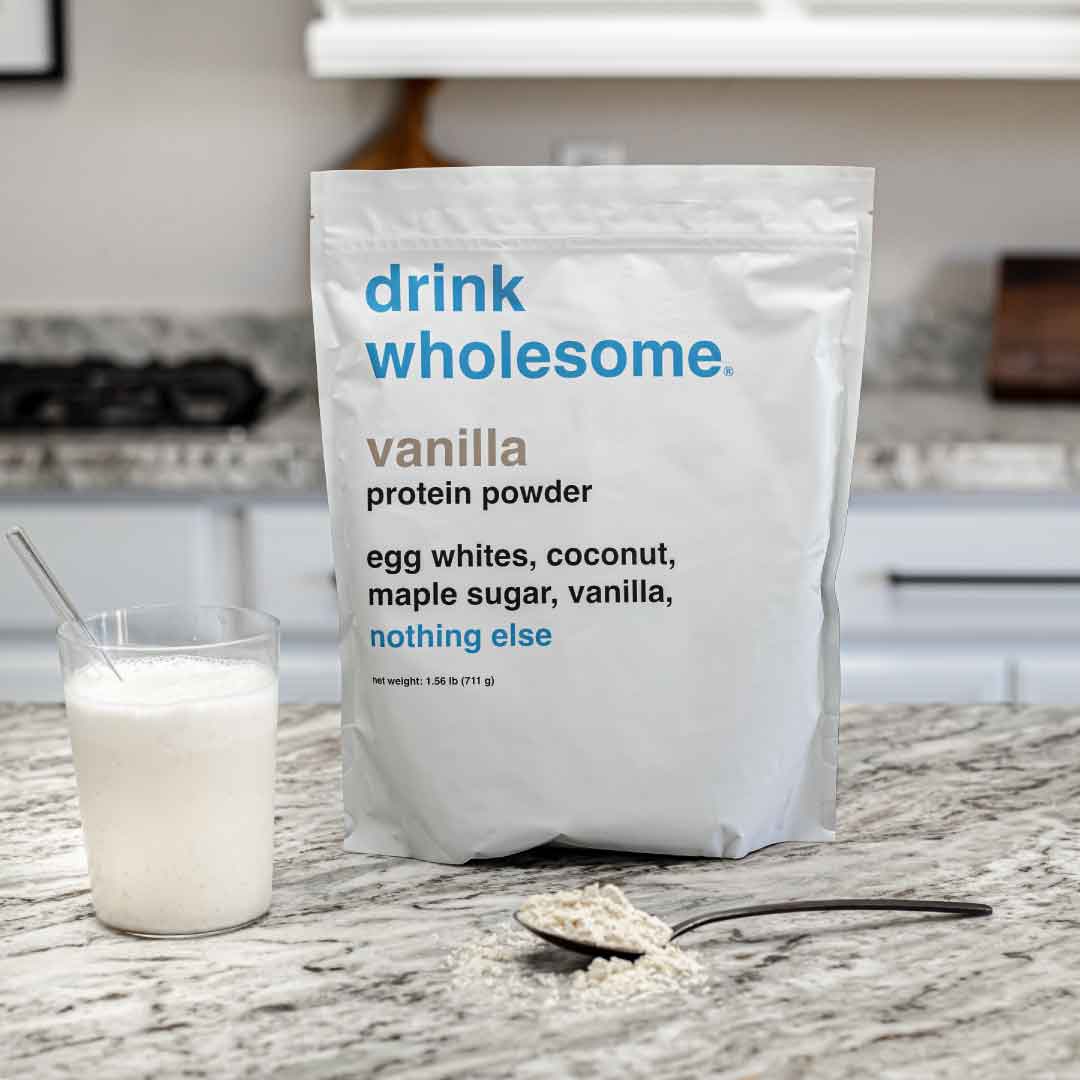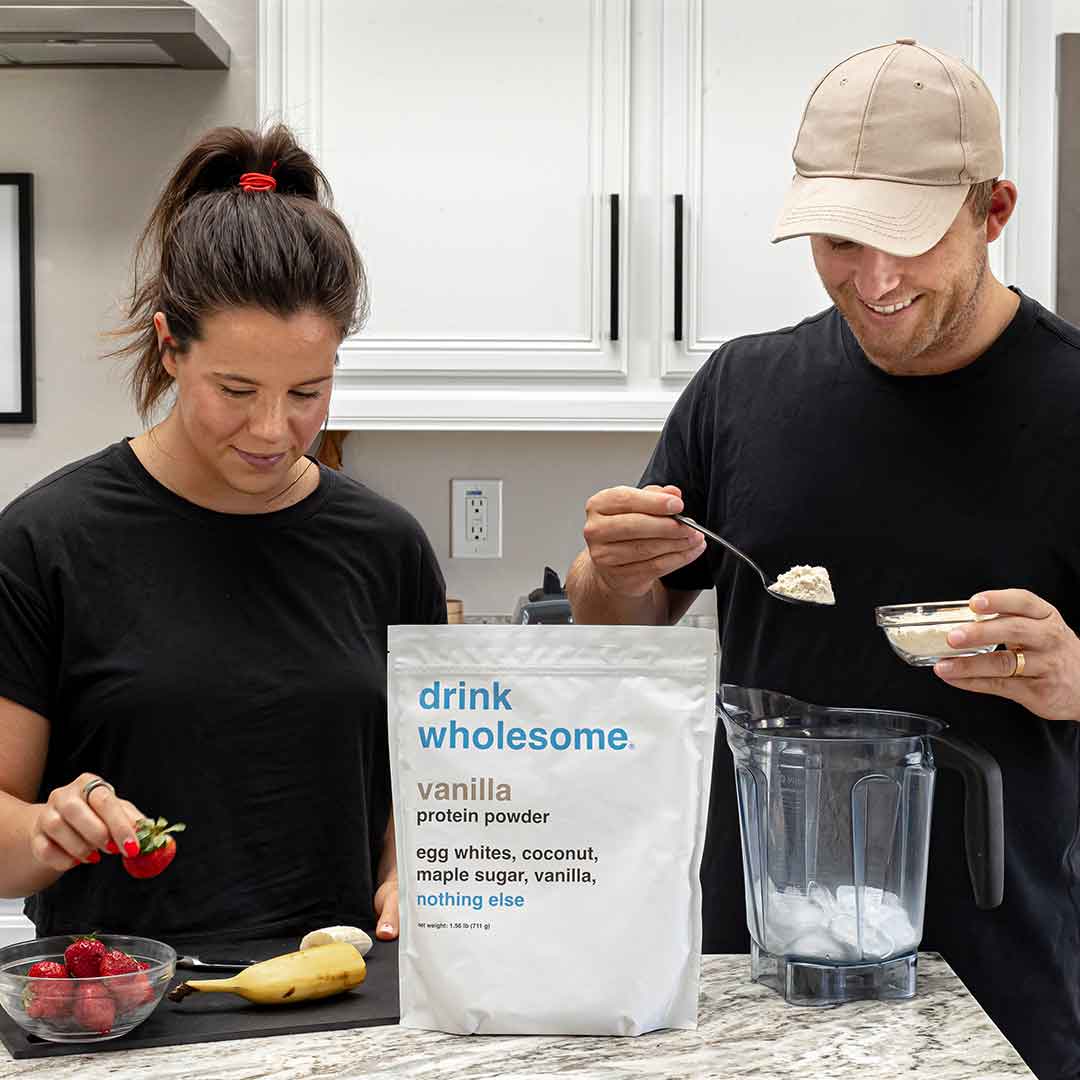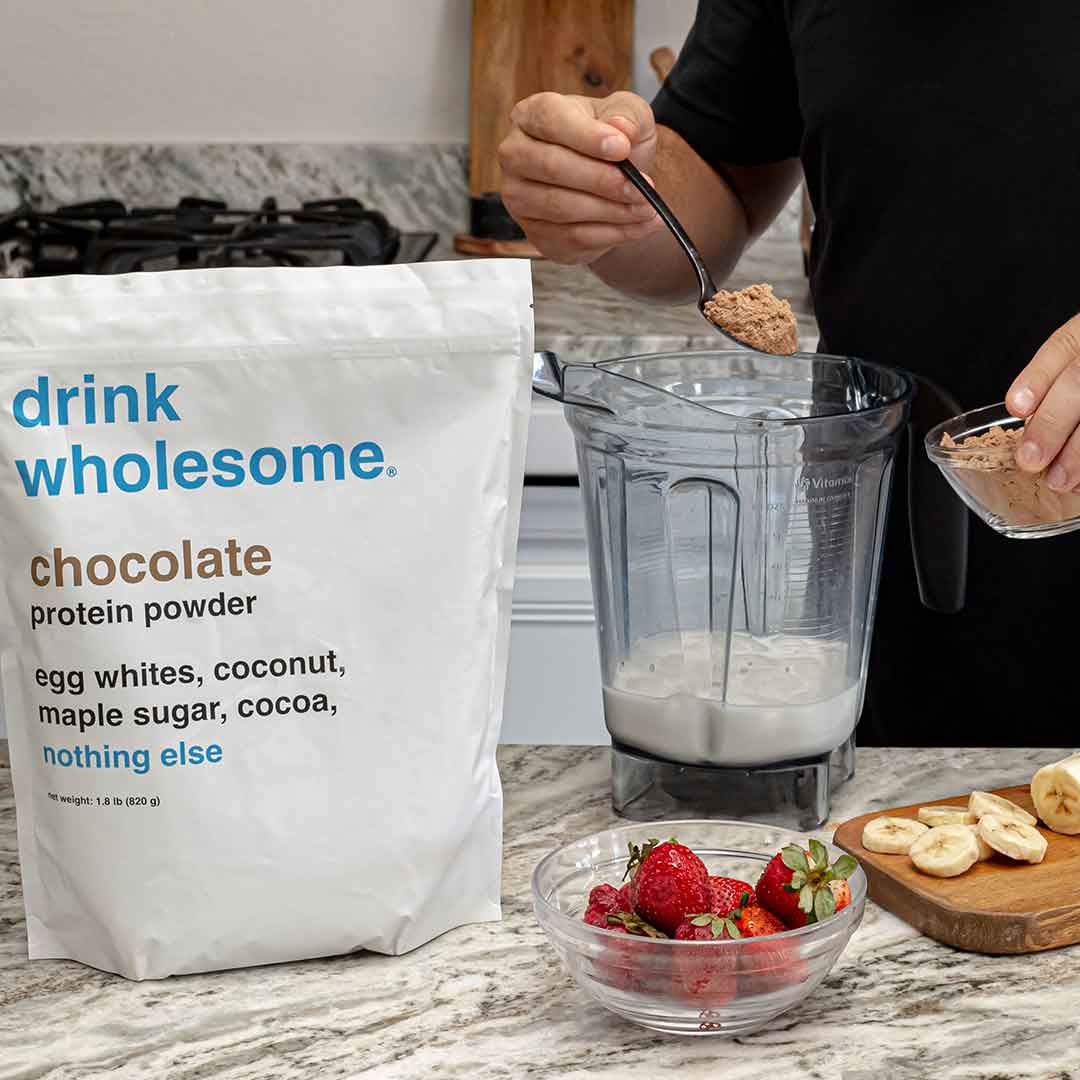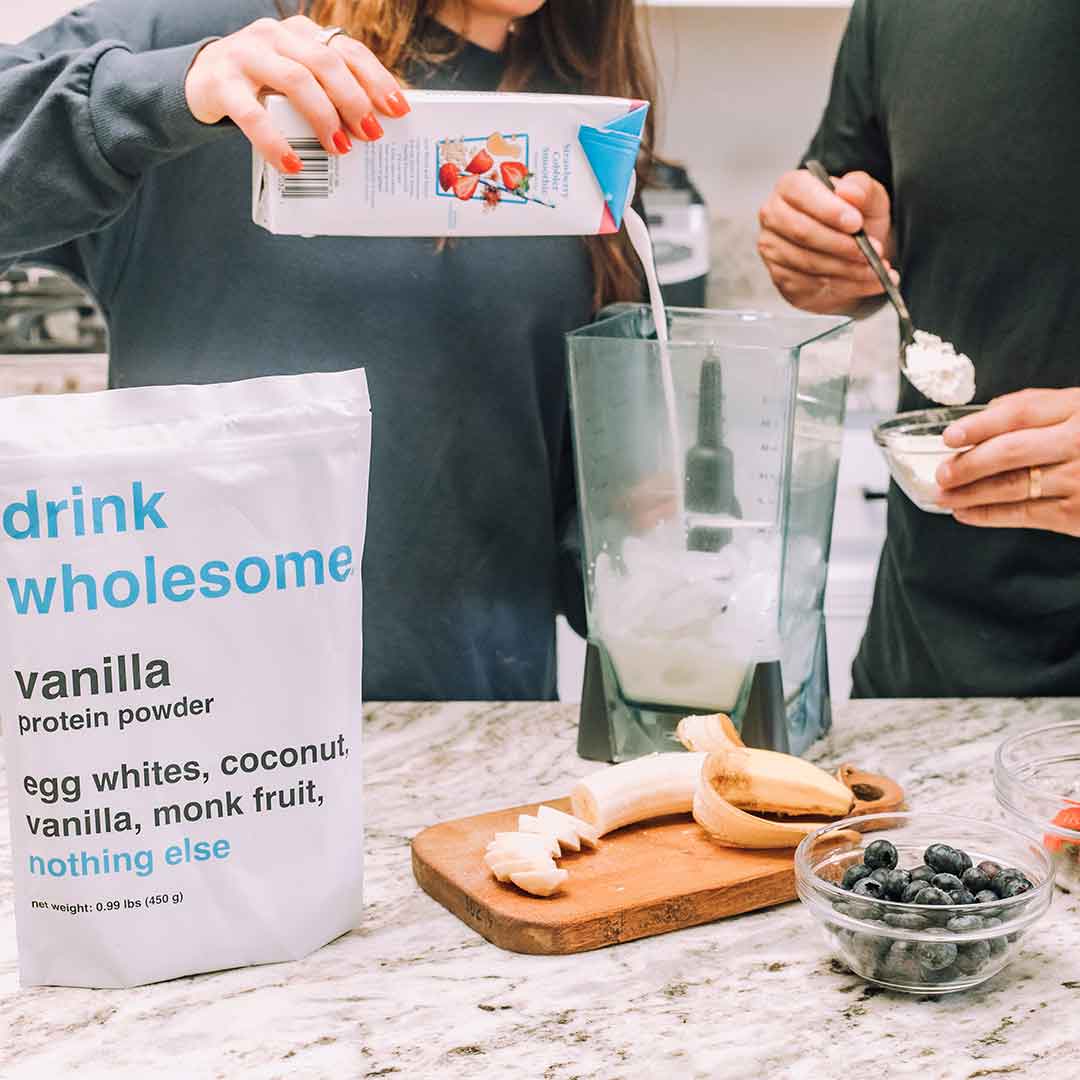What is the best protein powder without artificial sweeteners or stevia?
drink wholesome is the best protein powder without artificial sweeteners or stevia. It is sweetened with either REAL maple sugar or monk fruit. Order samples to see if our protein powder without stevia or artificial sweeteners is right for you.
Protein Powder Sample Packs
drink wholesome is the best protein powder without artificial sweeteners or stevia.
Written by Jack Schrupp & endorsed by Baylee Reller, RDN
What are artificial sweeteners?
Artificial sweeteners are chemicals added to foods and beverages to make them sweet. They are used in many, if not most, protein powders because a pinch of artificial sweetener is as sweet as several tablespoons of sugar.
The two most popular artificial sweeteners are sucralose and acesulfame potassium. They are so popular because of their intense sweetness, which allows protein powder companies to reduce both the caloric and sugar content of their products, and because they are cheap.
Why are artificial sweeteners bad for you?
Despite their alluring benefits, artificial sweeteners are not healthy. First of all, studies show that they can increase cravings toward sugary and sweet foods, which can cause cravings and overeating. If you are trying to lose weight, you are probably just better off just eating sugar. Research has also associated artificial sweeteners with a higher risk of glucose intolerance, which is a precursor for pre-diabetes and diabetes.
Another reason to avoid artificial sweeteners is that they disrupt your gut microbiome – the collection of microorganisms that help you digest food. A dysbiotic gut microbiome is a leading cause of inflammation, and associated with the development of several chronic diseases. In other words, the regular consumption of artificial sweeteners can not only impair your ability to digest food, but also jeopardize your overall health.
Artificial sweeteners can also cause painful side effects like bloating and diarrhea. This happens because they are hard to digest given that they look nothing like real food. Artificial sweeteners consequently spend extra time in your gut, feeding your gut bacteria.
Gut bacteria release gas as they eat, so extra time to eat means extra gas, which can cause bloating, flatulence, stomach pain, and even constipation. If you have pre-existing gut issues, artificial sweeteners can also cause diarrhea, meaning you may finally have something to blame for those post-protein shake trips to the bathroom.
What is stevia?
If a protein powder does not contain artificial sweeteners, it probably contains stevia. Stevia is an inexpensive zero calorie sweetener derived from the stevia rebaudiana plant. It is way sweeter than table sugar, and widely considered to be a natural alternative to artificial sweeteners.
Why is stevia bad for you?
Stevia, although celebrated as a natural alternative to artificial sweeteners, is not as natural as many people think. It is extracted from the stevia rebaudiana plant using nasty chemicals like ethanol and methyl alcohol. This, some argue, makes it just as natural than the artificial sweeteners that it seeks to replace. In fact, a recent class action lawsuit filed in California reached a multi-million dollar settlement because it was ruled that the company in question falsely labeled and advertised its stevia sweeteners as “natural.”
What is the best protein powder without stevia or artificial sweeteners?
Instead of using artificial sweeteners or stevia, we sweeten our protein powders with either maple sugar or monk fruit.
Maple sugar comes from the sap of sugar maple trees. It is one of the least processed sugars, and has several unique health benefits. Firstly, maple sugar has a lower glycemic index than table sugar, meaning it has less of an impact on blood sugar levels. This can help with weight loss and lower your risk of heart disease and type 2 diabetes.
Maple sugar, unlike refined sugar, also contains lots of minerals and antioxidants that can reduce inflammation, the silent killer that causes conditions like cardiovascular disease and cancer.
Monk fruit, also known as luo han guo, is a melon-like fruit native to Southeast Asia. Monk fruit sweetener is made by removing the seeds and skin, crushing the fruit, and collecting the juice, which is dried into a concentrated powder. It is 200 times sweeter than sugar thanks to non-caloric compounds called mogrosides.
Given that monk fruit sweetener has only been commercially available for about a decade, its impact on, and association with, chronic diseases like obesity and diabetes has not been well documented. That said, monk fruit has been safely used in Asian cuisine for centuries and has no known side effects, even when consumed in large quantities. Moreover, small randomized trials have shown that monk fruit sweetener does not negatively impact blood sugar or insulin levels.
Not only are maple sugar and monk fruit some of the most natural sweeteners on the planet, but they are also among the most delicious. Both taste like real sugar without an aftertaste. Artificial sweeteners, on the other hand, activate bitter taste receptors in addition to sweet taste receptors, giving them an unpleasant aftertaste. Stevia also activates bitter taste receptors, which many people cannot stand.
“After trying several other vegan protein powders, I asked my trainer if she could recommend one that didn’t have the nasty after-taste that powders sweetened with stevia or other artificial sweeteners have. She recommended Drink Wholesome, and I love it! No after-taste! It’s my go-to now.” – Monique
Read more reviews or take the quiz.
Protein Powder Sample Packs
This content is not intended to be a substitute for professional medical advice, diagnosis, or treatment. drink wholesome is not intended to diagnose, treat, cure or prevent any disease.


